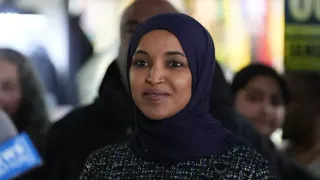March 19, 2017
Gay Indian Prince Touts LGBT Center in SF Visit
Heather Cassell READ TIME: 6 MIN.
India's gay prince, Manvendra Singh Gohil, the crown prince of Rajpipla, will be making his first visit to the Bay Area to raise money for his new LGBT community center in Rajpipla.
Rajpipla is in the Indian State of Gujara, about seven hours north from Mumbai.
This is the first time the prince has visited the Bay Area, which 244,493 Indians call home, reported the Mercury News, including a thriving queer Indian community.
The Bay Area is also home of the world's first LGBT South Asian organization, Trikone.
Manvendra will be interviewed by David Perry of San Francisco's "10 Percent" TV show during a benefit event in the Castro March 21.
He will also be feted at a dinner with LGBT leaders Wednesday, March 22 that is being organized by MAX, a social club for gay men and their friends, and is a benefit for the center.
Manvendra's visit to San Francisco is to raise awareness and money not only for the center, but also for The Freedom to be Who You Are, a social justice entertainment organization.
The new LGBT center, which is envisioned to provide a variety of services, including health care, shelter, and yoga and music classes, will be housed in a building that was owned by the prince's great grandfather, His Highness Maharaja Vijay Singhji Rajpipla. Maharaja was the last ruler of Rajpipla before it merged with India, the prince told the Bay Area Reporter in a WhatsApp interview last weekend.
Manvendra hopes that his visit will be mutually beneficial - that San Franciscans can be inspired by his experiences and that he can build relationships that will support his work in India.
"I would feel happy that I could help somebody in that part of the world," he said, adding that he will also be selling select royal scarves made of Pashmina from his new collection, which will also benefit his projects.
Growing Pains
India has undergone a number of changes during the past decade and since Manvendra, 51, came out as a gay man.
Upon his coming out, he was disowned by his parents and suffered a nervous breakdown. He had also been married to a woman. He was then discovered by the BBC and Oprah Winfrey.
In 2009, the Delhi High Court ruled that Section 377, an 1861 British colonial-era law that was used to criminalize homosexuality, was unconstitutional. But India's Supreme Court reinstated the law in 2013, and it remains on the books today. Violators face up to 10 years in prison and a fine if caught.
The prince said that there has been a great deal of support from Indians in general to overturn the supreme court's decision.
"A lot of people came in support because I think that the society felt that really an injustice has been done," said Manvendra, who views the law as more of a human rights issue than a gay issue because it in effect criminalizes anyone who isn't having sex to procreate.
Additionally, he believes that the law shouldn't have ever been carried over after India gained its independence from the British in 1947. The prince pointed out that prior to British rule, India had a long history of homosexuality that was accepted in its art and culture. A prime example being the Kama Sutra, he pointed out.
Currently, from his perspective, there isn't a law that criminalizes homosexuality in India. But the law prohibits sexual activity between persons of the same gender and same-sex couples cannot marry or obtain a civil partnership.
Section 377 has also had a profound effect on the rise of HIV rates in India, said the prince. He claimed that authorities misuse the law, enforcing it to criminalize handing out condoms to promote safer sex practices.
"It's a dispute of hypocrisy versus humanity ... put it in very, very simple language it's nothing else but hypocrisy," the prince said about Section 377.
India Rising
The prince is hopeful about India reclaiming its understanding of human sexuality, pointing out that under Prime Minister Narendra Modi, who is a member of the conservative Bharatiya Janata Party, the health ministry has released a sex education app that includes positive information about homosexuality that has gained popularity among students.
"This itself is a positive step which we have seen in India now with the present government," he said. "I think that there is a bright future in India."
Another sign of progress, a year after the reinstatement of Section 377, the high court recognized a third gender, ordering the government to provide official documentation and a pathway to education and employment for trans people.. The ruling has helped India's transgender community with programs, such as transgender-operated taxis, a new school established in the Indian state of Kerala, and the country's first transgender principal of an all-women's college.
In July 2015, India elected its first transgender mayor.
"I would never have expect[ed] this would happen in my lifetime, so the transgenders have all of the rights now," said Manvendra.
Yet, the fight is far from over in India for transgender rights. Currently, there's a transgender rights bill poised to pass in the Indian Parliament later this year. It's not completely supported by the transgender community, because one clause attempts to define all transgender people as intersex, Abhina Aher told the Business of Fashion.
A Prince's Movement
Manvendra has also become a leading advocate for HIV/AIDS and LGBT and human rights in India. In 2000, he launched the Lakshya Trust after hosting a successful LGBT rights conference in his state.
The trust's name means "goal" and its work is focused on helping the LGBT community. It was financially backed by the state's government with its HIV/AIDS program, said the prince. The new community center will operate under the trust.
Today, the trust has about four centers across his home state, employing upward of 300 people, 90 percent of whom identify as LGBT and 10 percent as non-queer. The trust operates on an estimated annual budget of $151,055 (10 million rupees), the prince said.
It receives funding from the Elton John AIDS Foundation through a grant to the AIDS India Alliance.
The prince is also working closely with the Los Angeles-based AIDS Healthcare Foundation, serving as its ambassador in India, and the Impulse Group ambassador working on HIV prevention and treatment programs in India, he said. AHF confirmed it is working with the prince on the programs.
Manvendra is a trained counselor and yoga instructor and a student of Indian classical music. He is working on incorporating programs, such as music therapy and yoga, into the offerings at the new center.
The center will provide an important resource to LGBT people. It will serve as a safe space where LGBT Indians in his region will be able to be themselves and receive the support they need to become independent, he said. This is important because many LGBT Indians continue the tradition of living in multigenerational households, leading them to live double lives at home and in heterosexual marriages when they fulfill their parents' wishes, he said. Few establish their own independence, which often requires running away from home and finding their own way, which requires education, employment, and housing. It also requires a great deal of emotional strength as family is very important in Indian culture, said Manvendra, who still lives in his own wing of the royal palace.
His own personal experience is why it's important to him to offer ways for LGBT people to become independent and self-sufficient through programs at the center, he said.
The other issue is education. Many Indians still face hurdles to access education, which can lead to gainful employment, especially speaking English and having skills in technology, he said.
"It's very important that the community gets empowered," said Manvendra, who added that the center is open to the entire community, not just LGBTs.
"It's basically to empower them, to educate them, [and] to develop skills in them," he said.
The Lakshya Trust benefit event with Prince Manvendra takes place March 21, from 5:30 to 8 p.m. at Beaux Bar, 2344 Market Street in San Francisco. The program will begin at 6:45 p.m. Indian food and beverages will be served. Tickets are $35 per person. For more information, contact Phil Walker at (415) 816-3527 or [email protected]






